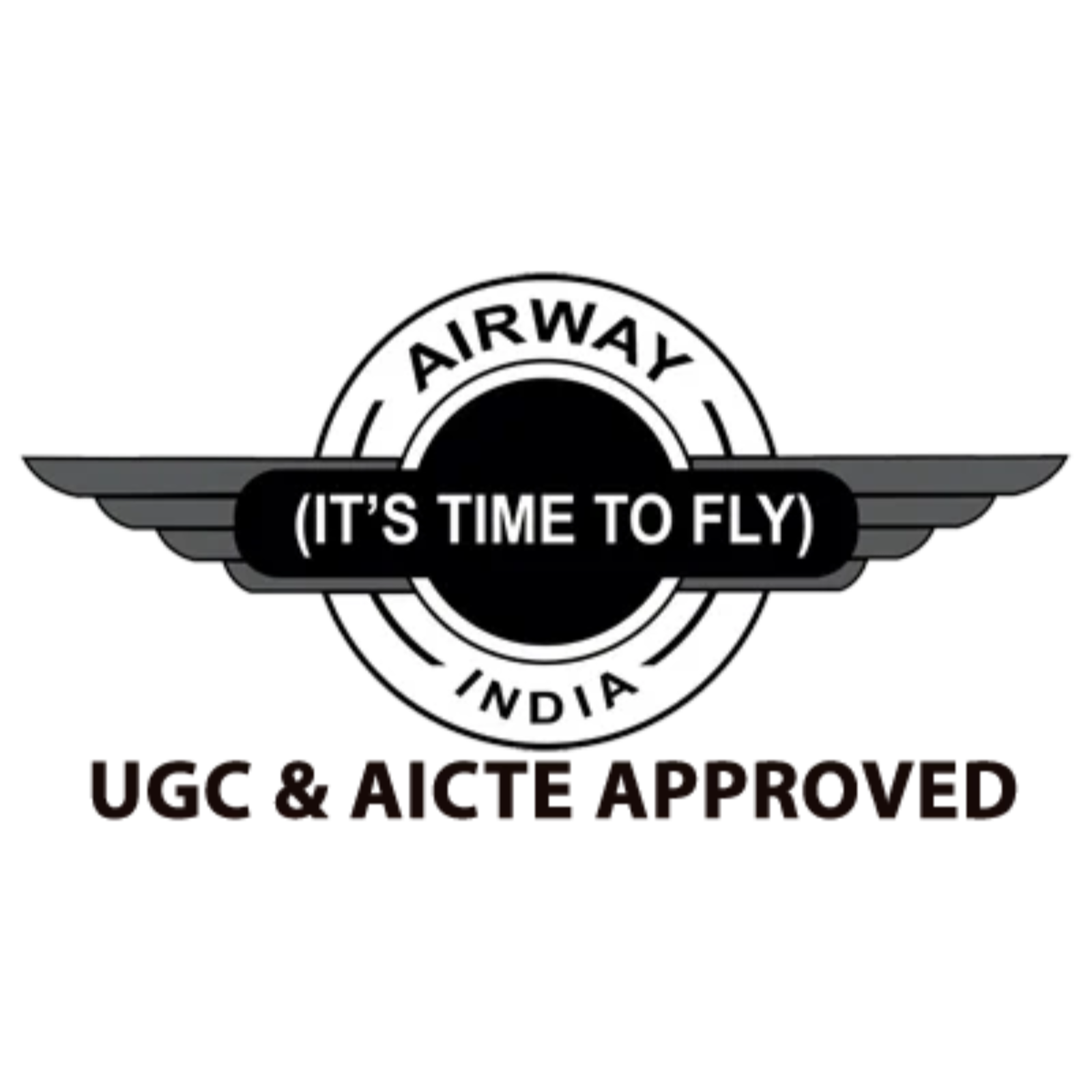
Introduction
Why Aviation Management Is Better Than Other Travel & Tourism Courses is a question many 12th pass-out students like you often ask. While both sound exciting and are part of the travel and hospitality world, they are actually quite different when it comes to job roles, career paths, and what you study. Aviation Management focuses more on airline operations, airport management, and logistics, whereas Travel & Tourism courses usually cover broader areas like holiday planning, travel sales, and hospitality.
In this blog, you’ll get a clear picture of both fields so that you can make the best career decision after Class 12. We’ll use simple examples, easy comparisons, and even some statistics to help you understand the full story. You’ll also find helpful links to trusted sources and other career guides.
🛫 1. Core Focus and Curriculum: What You’ll Study Matters
When you compare how Aviation Management differs from other Travel & Tourism courses, the first thing to check is what each course teaches you.
Aviation Management Curriculum
In Aviation Management, you will learn about:
- Airline Operations
- Airport Ground Handling
- Cargo and Logistics
- Aviation Law & Safety
- Airline Revenue & Fleet Management
- Customer Service in Airlines
For example, if you join an aviation management course, you’ll learn how to manage delays at an airport or how airlines plan flight schedules — it’s more operational and business-focused.
Travel & Tourism Curriculum
Travel & Tourism courses, on the other hand, include:
- Tour Planning
- Heritage and Culture
- Hospitality Management
- Travel Agency Operations
- Ticketing and Reservation Systems
So if you are more into holiday planning or managing a resort or hotel, tourism is more suitable.
💼 2. Career Opportunities: Airlines vs. Tour Companies
The second big difference in how Aviation Management differs from other Travel & Tourism courses is in job roles after the course.
Aviation Management Better Careers:
- Airport Operations Manager
- Ground Staff Executive
- Flight Dispatcher
- Cargo Supervisor
- Airline Customer Service Manager
- Aviation Safety Officer
These roles are mostly connected with airports, airlines, and cargo companies.
Travel & Tourism Careers:
- Travel Consultant
- Tour Operator
- Hotel Manager
- Reservation Executive
- Cruise Staff
- Event Coordinator
These jobs are more about helping people plan trips, manage hospitality services, or sell packages.
Here’s a comparison chart:
| Career Path | Aviation Management | Travel & Tourism |
|---|---|---|
| Job Roles | Airline/ Airport Ops | Tours, Hotels |
| Starting Salary (India) | ₹25,000 – ₹40,000/month | ₹15,000 – ₹25,000/month |
| Growth | Fast with experience | Depends on tourism trends |
| Work Location | Airports, Airlines | Travel agencies, hotels |
📌 External Read: Check out this detailed guide on careers in aviation from airwayindia.
🎓 3. Skill Development: What You’ll Learn Beyond Books
How Aviation Management differs from other Travel & Tourism courses also comes down to what kind of skills you build.
Aviation Management Skills:
- Crisis Handling at Airports
- Leadership & Team Management
- Time-sensitive Decision Making
- Communication with International Passengers
- Knowledge of Airline Software (e.g., Sabre, Galileo)
Travel & Tourism Skills:
- Customer Service in Hotels or Tours
- Selling Travel Packages
- Planning Itineraries
- Multi-lingual Communication
- Handling Bookings & Reservations
📊 Data Insight:
A 2023 report from NASSCOM shows that soft skills like communication and team management are among the top 5 skills employers look for in aviation roles.
Here’s a quick table:
| Skills | Aviation | Tourism |
|---|---|---|
| Time Management | ✅ | ✅ |
| Leadership | ✅ | ❌ |
| Itinerary Planning | ❌ | ✅ |
| Crisis Handling | ✅ | ❌ |
For example, in aviation, if a flight is delayed, the ground staff must act fast and keep passengers calm. In tourism, your focus might be on arranging a last-minute hotel booking or customizing a tour.
📈 4. Job Market & Salary Growth: Numbers Don’t Lie
Let’s look at some real data to understand how Aviation Management differs from other Travel & Tourism courses in terms of salary and growth.
According to AmbitionBox and Glassdoor India:
| Course | Average Starting Salary | Salary After 5 Years |
|---|---|---|
| Aviation Management | ₹3.5 – ₹5 LPA | ₹8 – ₹12 LPA |
| Travel & Tourism | ₹2 – ₹3.5 LPA | ₹4 – ₹6 LPA |
In aviation, as airlines grow and newer airports open, more professionals are needed. India is planning to build 100 new airports by 2026 under UDAN Scheme (Govt. of India), which increases demand for aviation professionals.
📖 Source: Ministry of Civil Aviation
Also, the Indian aviation market is expected to be the 3rd largest globally by 2026, according to CAPA India. This means more jobs, faster growth, and better pay.
🔗 For comparison, explore this post on tourism job trends on India Brand Equity Foundation (IBEF).
📚 5. Real-life Applications & Future Scope
You must be thinking — “What’s the future like?” That’s another place how Aviation Management differs from other Travel & Tourism courses clearly.
Aviation: Technology + Expansion
- Use of AI for flight operations
- Automated check-in systems
- Increasing focus on airport logistics
Example: In big airports like Delhi or Bangalore, there are managers who handle over 500 flight movements a day. That’s the kind of work aviation students get trained for.
Travel & Tourism: Seasonal Growth
Tourism depends a lot on seasons and global trends. For example, international tourism dropped during COVID-19, affecting job security in that industry.
| Factor | Aviation | Tourism |
|---|---|---|
| Tech-based Jobs | ✅ | ❌ |
| Global Job Openings | ✅ | ✅ |
| Industry Growth Rate (2023) | 8.5% | 5.2% |
| Dependence on Seasons | Low | High |
✈️ Fun Fact:
By 2037, 4.8 billion people are expected to travel by air annually.
📖 Source: IATA Future of the Airline Industry
✅ Conclusion
Now that you clearly understand how Aviation Management differs from other Travel & Tourism courses, it’s time to decide what suits you best. If you dream of working at an airport, managing airline schedules, or helping run international air operations, Aviation Management is the better choice. It offers faster growth, better pay, and more stable career options.
On the other hand, if you love planning trips, talking to tourists, or managing holidays, then Travel & Tourism might be your calling. Both are great careers — but with different paths and outcomes.
So what will you choose?
✈️ Take the first step: Learn more about how to apply for aviation management courses after 12th and start your journey.
Let me know if you’d like this post as a formatted Word doc, HTML file, or if you want visual designs/infographics added for the blog layout.

